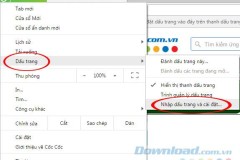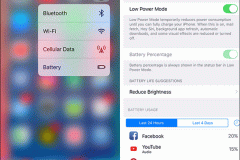SHANGHAI, China, June 29, 2023 (GLOBE NEWSWIRE) -- Shanghai Junshi Biosciences Co., Ltd (“Junshi Biosciences,” HKEX: 1877; SSE: 688180), a leading innovation-driven biopharmaceutical company dedicated to the discovery, development, and commercialization of novel therapies, announced that the U.S. Food and Drug Administration (“FDA”) has recently agreed a randomized, double-blind, placebo-controlled, multi-regional phase 3 clinical study of tifcemalimab (product code: TAB004/JS004), an anti-BTLA monoclonal antibody used in combination with toripalimab, an anti-PD-1 monoclonal antibody, as consolidation therapy for patients with limited-stage small cell lung cancer without disease progression following chemoradiotherapy may proceed. Junshi Biosciences will officially initiate the phase 3 clinical study in the near future.
According to GLOBOCAN 2020, lung cancer is a form of malignant tumor with the highest incidence rate and mortality in China. Lung cancer can be broadly categorized into non-small cell lung cancer (“NSCLC”) and small cell lung cancer (“SCLC”), based on cell type. Specifically, small cell lung cancer is the most invasive subtype of lung cancer, accounting for about 15%-20% of all lung cancer cases with characteristics such as rapid progression, early metastasis, and poor prognosis. Small cell lung cancer includes limited-stage small cell lung cancer (“LS-SCLC”) and extensive-stage small cell lung cancer, and LS-SCLC accounts for about one-third of all small cell lung cancer cases. For LS-SCLC patients who are unable to undergo surgery or refuse it, chemo-radiotherapy (CRT) is the standard of care (SOC). However, even after standard cardiac resynchronization therapy, the prognosis remains poor, with a median progression-free survival (mPFS) of approximately 13.5 months, a median overall survival (mOS) of 16-24 months, and a 5-year survival rate of only 15%-26%. There is still a huge unmet medical need for the treatment of LS-SCLC, and there is an urgent need to explore more effective and well-tolerated therapeutic approaches in clinical practice. There are currently no globally approved immune checkpoint inhibitors specifically for LS-SCLC.
The study to be initiated by Junshi Biosciences is a randomized, double-blind, placebo-controlled, multi-regional phase 3 clinical study aimed to evaluate the efficacy and safety of tifcemalimab in combination with toripalimab, toripalimab alone, or placebo as consolidation therapy for LS-SCLC patients without disease progression following CRT. This study serves as the first confirmatory trial of BTLA-targeted drugs, and the principal investigator will be academician Jinming YU, President of Shandong Cancer Hospital & Institute. The study plans to enroll 756 patients from China, the United States, Europe, and other regions across the world.
“In recent years, immune-oncology (I-O) therapy has made rapid advancements, particularly in the field of lung cancer, where it has emerged as the standard of care for first-line treatment of advanced NSCLC,” said Dr. Jianjun ZOU, the Global Research and Development President of Junshi Biosciences. “Regarding more aggressive SCLC, however, the progress in I-O therapy has been relatively slow. To date, no immune checkpoint inhibitor has received approval for the treatment of LS-SCLC. Tifcemalimab is Junshi Biosciences’ first independently developed ‘first-in-class’ product, and it bears the potential to be combined with our cornerstone antibody, toripalimab, and enhance patient response to I-O therapy, increase the number of patients who can benefit from I-O therapy, and introduce new breakthroughs in the treatment of LS-SCLC patients!”
About Tifcemalimab (JS004/TAB004)
Independently developed by Junshi Biosciences, tifcemalimab is the world’s first-in-human recombinant humanized anti-BTLA (B- and T-lymphocyte attenuator) monoclonal antibody against cancer. Tifcemalimab has been agreed to enter phase 3 clinical study, and several phase 1b/2 clinical trials of tifcemalimab in combination with toripalimab in patients with different types of tumors are currently underway in China and the United States.
The B and T lymphocyte attenuator (BTLA), the target of tifcemalimab, was discovered in 2003. BTLA is a member of the CD28 receptor family and possesses a single IgSF V extracellular domain. Its sequence is similar to other molecules within the CD28 family (such as PD-1 and CTLA-4).
BTLA is expressed in the T lymphocyte, B lymphocyte, and dendritic cell subpopulations. In 2005, the interaction between BTLA and its ligand, Herpes virus entry mediator (HVEM), was discovered. HVEM, a TNF receptor, is extensively expressed in the hematopoietic system and has been confirmed as the ligand of BTLA.
BTLA is an immunoglobulin-associated membrane protein; its protein structure is similar to that of the transmembrane receptors (CTLA-4 and PD-1). Under normal physiological conditions, after BTLA binds with its ligand HVEM, it inhibits the over-activation of lymphocytes in the human body, thus preventing autoimmune injuries.
By binding with BTLA, tifcemalimab blocks the HVEM-BTLA interaction, thereby obstructing the BTLA-mediated inhibitory signal pathways and activating the tumor-specific lymphocytes.
About Toripalimab
Toripalimab is an anti-PD-1 monoclonal antibody developed for its ability to block PD-1 interactions with its ligands, PD-L1 and PD-L2, and for enhanced receptor internalization (endocytosis function). Blocking PD-1 interactions with PD-L1 and PD-L2 promotes the immune system’s ability to attack and kill tumor cells.
More than forty company-sponsored toripalimab clinical studies covering more than fifteen indications have been conducted globally by Junshi Biosciences, including in China, the United States, Southeast Asia, and Europe. Ongoing or completed pivotal clinical trials evaluating the safety and efficacy of toripalimab cover a broad range of tumor types, including cancers of the lung, nasopharynx, esophagus, stomach, bladder, breast, liver, kidney, and skin.
In China, toripalimab was the first domestic anti-PD-1 monoclonal antibody approved for marketing (approved in China as TUOYI®). Currently, there are six approved indications for toripalimab in China:
unresectable or metastatic melanoma after failure of standard systemic therapy;recurrent or metastatic nasopharyngeal carcinoma (“NPC”) after failure of at least two lines of prior systemic therapy;locally advanced or metastatic urothelial carcinoma that failed platinum-containing chemotherapy or progressed within 12 months of neoadjuvant or adjuvant platinum-containing chemotherapy;in combination with cisplatin and gemcitabine as the first-line treatment for patients with locally recurrent or metastatic NPC;in combination with paclitaxel and cisplatin in first-line treatment of patients with unresectable locally advanced/recurrent or distant metastatic esophageal squamous cell carcinoma ('ESCC');in combination with pemetrexed and platinum as the first-line treatment in EGFR mutation-negative and ALK mutation-negative, unresectable, locally advanced or metastatic non-squamous non-small cell lung cancer (NSCLC).The first three indications have been included in the National Reimbursement Drug List (NRDL) (2022 Edition). Toripalimab is the only anti-PD-1 monoclonal antibody included in the NRDL for the treatment of melanoma.
In the United States, the Biologics License Application (BLA) for toripalimab in combination with gemcitabine/cisplatin for the first-line treatment of patients with advanced recurrent or metastatic NPC and toripalimab monotherapy for the second-line or later treatment of recurrent or metastatic NPC after platinum-containing chemotherapy is under review by the U.S. Food and Drug Administration (“FDA”). The FDA has granted Breakthrough Therapy designations for toripalimab in combination with chemotherapy for the first-line treatment of recurrent or metastatic NPC as well as for toripalimab monotherapy in the second or third-line treatment of recurrent or metastatic NPC. Additionally, the FDA has granted Fast Track designation for toripalimab for the treatment of mucosal melanoma and Orphan Drug designations for the treatment of esophageal cancer, NPC, mucosal melanoma, soft tissue sarcoma, and small cell lung cancer (SCLC).
In Europe, marketing authorization applications (MAA) were accepted by the European Medicines Agency (EMA) and the United Kingdom’s Medicines and Healthcare products Regulatory Agency (MHRA) for 1) toripalimab combined with cisplatin and gemcitabine for the first-line treatment of patients with locally recurrent or metastatic NPC and 2) toripalimab combined with paclitaxel and cisplatin for the first-line treatment of patients with unresectable locally advanced/recurrent or metastatic ESCC, in December 2022 and February 2023.
About Junshi Biosciences
Founded in December 2012, Junshi Biosciences (HKEX: 1877; SSE: 688180) is an innovation-driven biopharmaceutical company dedicated to the discovery, development, and commercialization of innovative therapeutics. The company has established a diversified R&D pipeline comprising over 50 drug candidates, with five therapeutic focus areas covering cancer, autoimmune, metabolic, neurological, and infectious diseases. Junshi Biosciences was the first Chinese pharmaceutical company that obtained marketing approval for an anti-PD-1 monoclonal antibody in China. Its first-in-human anti-BTLA monoclonal antibody for the treatment of various cancers was the first in the world to be approved for clinical trials by the FDA and NMPA and has since entered Phase Ib/II trials in both China and the US. Its anti-PCSK9 monoclonal antibody was the first in China to be approved for clinical trials by the NMPA.
In the face of the pandemic, Junshi Biosciences’ response was strong and immediate, joining forces with Chinese and international scientific research institutions and enterprises to develop an arsenal of drug candidates to combat COVID-19, taking the initiative to shoulder the social responsibility of Chinese pharmaceutical companies by prioritizing and accelerating COVID-19 R&D. In 2021, JS016 (etesevimab), China’s first neutralizing fully human monoclonal antibody against SARS-CoV-2 administered with bamlanivimab, was granted Emergency Use Authorizations (EUA) in over 15 countries and regions worldwide. Meanwhile, VV116 (deuremidevir hydrobromide), a novel oral nucleoside analog anti-SARS-CoV-2 drug designed to hinder virus replication, has been approved for marketing in China and Uzbekistan. The JS016 and VV116 programs are a part of the company’s continuous efforts towards innovation for disease control and prevention of the global pandemic.
Junshi Biosciences has about 3,000 employees in the United States (San Francisco and Maryland) and China (Shanghai, Suzhou, Beijing, Guangzhou, etc.). For more information, please visit: http://junshipharma.com.
Junshi Biosciences Contact Information
IR Team:
Junshi Biosciences
info@junshipharma.com
+ 86 021-6105 8800
PR Team:
Junshi Biosciences
Zhi Li
zhi_li@junshipharma.com
+ 86 021-6105 8800

















